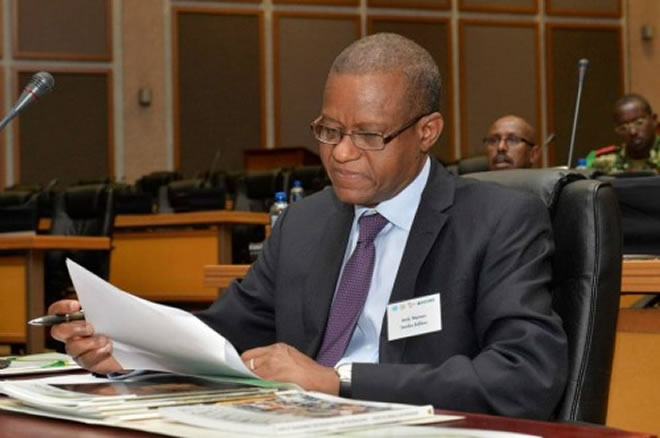AMISOM to compensate families for atrocities

AMISOM has agreed to compensate Somalis for offences committed by its troops since 2011, officials have said.
Somali Parliamentary Defence Committee chairman Hussein Arab Isse in an exclusive interview with Goobjoog News said they had discussed with AMISOM on compensation for civilian killings by their troops in Somalia. “AMISOM has agreed to investigate incidents from 2011 and accepted acceded to compensation for the families of the victims if the investigation prove killings were committed by its troops,” said said Isse.
He added that AMISOM officials agreed to take precautions to prevent civilian casualties in the conduct of its operations against the Al-Shabaab.
Civilian casualties
Last week, Head of AMISOM Ambassador Maman Sidikou and his deputy, Lydia Wanyoto met Somalia’s Parliamentary Defence Committee where they discussed wide range of issues including Somalia’s security institutions, killings allegedly committed by their troops and minimizing civilian casualties during AMISOM operations.
AMISOM troops allegedly killed 58 civilians and 31 others sustained injuries last month, according to Goobjoog Crime Watch records. Meanwhile, AMISOM officials who have maintained their denial against civilian killings have appealed Somalis to support their operation by exposing militants that are disguised as civilians in communities so that soldiers can avoid civilian casualties.
Human Rights Watch
The commitment from AMISOM comes in the wake of demands by Human Rights Watch, HRW, to investigate and prosecute AMISOM troops found guilty of murder or injury of civilians.
“African Union (AU) forces in Somalia (AMISOM) should impartially investigate the killing by alleged Ugandan army troops of six men at a wedding on July 31, 2015, in the Somali port town of Merka. The investigation should be carried out with maximum protection for witnesses, and the Ugandan government should fairly prosecute any of its soldiers responsible for criminal offenses,” the rights group said.
HRW said despite the numerous challenges AMISOM soldiers faced in their peace keeping mission, respect of law still remained paramount.
“African Union forces in Somalia face difficult challenges, but that makes respecting the laws of war even more crucial,” said Maria Burnett, senior Africa researcher at Human Rights Watch.